Happy Thursday! Philadelphia Eagles wide receiver A.J. Brown read the book Inner Excellence by Jim Murphy on the sidelines of his team’s playoff appearance last week, and now it’s an Amazon bestseller. The TMD team wonders what might happen if we handed out copies of Liberal Fascism to players before the games this Sunday.
Quick Hits: Today’s Top Stories
- President Donald Trump issued an executive order on Wednesday redesignating the Houthis, an Iranian-backed rebel group controlling parts of Yemen, as a foreign terrorist organization. The designation undid former President Joe Biden’s 2021 decision to remove the militants from the terrorist list and followed more than a year of Houthi attacks on military and commercial vessels traversing the Red Sea—a campaign that has sunk two vessels, killed four seafarers, and forced shipping companies to avoid the strategic waterway in favor of longer routes. Also on Wednesday, the Houthis released the 25 multinational crew members of the Galaxy Leader, a Bahamas-flagged cargo ship, after holding them hostage since November 2023 in ostensible solidarity with Hamas. In addition to its attacks on international shipping, the group has launched more than 350 missiles and drones at Israel since October 2023.
- The United Kingdom detected a Russian spy ship near the English coast for the second time in three months, British Defense Secretary John Healey said Wednesday. Healey told Parliament that the Russian ship, used for “gathering intelligence and mapping Britain’s critical underwater infrastructure,” first appeared in November but left U.K. waters after a British submarine surfaced nearby. Healey’s announcement followed a string of recent Russian maritime activity in and around NATO waters, including near the Finnish coast, where the European Union accused Moscow of intentionally damaging a key undersea power cable that runs between Finland and Estonia in December.
- The House passed the Laken Riley Act on Wednesday, making it the first bill to reach President Trump’s desk this term. The bill—named after an Augusta University nursing student who was murdered in Georgia by an illegal immigrant from Venezuela last year—requires Immigration and Customs Enforcement to detain undocumented immigrants who are charged, arrested, or convicted for “burglary, theft, larceny, or shoplifting.” The House vote was 263-156 after 46 Democrats joined Republicans to support the measure, which passed the Senate Monday on a vote of 64-35. The lower chamber initially approved the bill in March of last year, but it stalled in the Democrat-controlled Senate.
- Acting Defense Secretary Robert Salesses announced plans on Wednesday to deploy more than 1,500 troops to the southern border with Mexico. The new deployments, which represent a 60 percent increase in the military presence there, will assist the area’s existing National Guard and reserve personnel in building physical barriers, among other tasks. The Department of Defense also will provide aircraft for the deportation of some 5,000 migrants currently detained near San Diego, California, and El Paso, Texas, by U.S. Customs and Border Protection. “This is just the beginning,” Salesses said of the move, which followed President Trump’s national emergency declaration on the southern border Monday.
- A 17-year-old male gunman shot two students, killing a 16-year-old girl, before fatally shooting himself at Antioch High School in Nashville on Wednesday morning. The Metro Nashville Police Department said Wednesday that authorities had not identified links between the shooter and his victims, and a report by the Tennessean found that the assailant had participated in various antisemitic, alt-right online communities before perpetrating the attack.
- A new wildfire broke out in the Los Angeles area on Wednesday, forcing the evacuation of tens of thousands of people and covering an area of more than 10,000 acres as of 10 p.m. PT, according to the U.S. Forest Service. The blaze—known as the Hughes fire—burned in and around a state park, fueled by high winds and dry brush. The two largest fires in the Los Angeles area—in the Palisades and Eaton neighborhoods—were 70 percent and 95 percent contained, respectively, as of Wednesday evening.
- Record-breaking snowfall and freezing temperatures hit the southeastern United States this week, killing at least 10 people. More than 2,000 flights in and out of airports from Texas to Florida were canceled as a result of the winter storm, and state officials urged drivers to stay off the roads. “We don’t do ice well,” Van R. Johnson, the mayor of Savannah, Georgia, said Tuesday. “It’s a time for Netflix and soup.”
Drill, Maybe, Drill
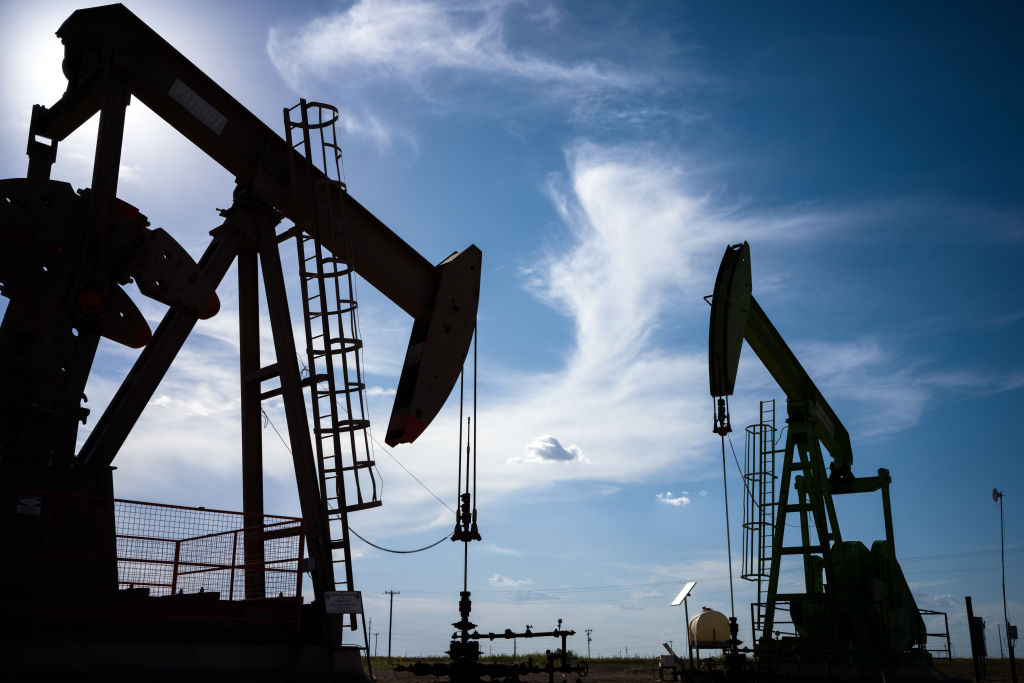
Together with a flurry of Day 1 executive orders, President Donald Trump’s first speech back in office signaled his plans to keep a key campaign promise: to “drill, baby, drill.”
“We have something that no other manufacturing nation will ever have: the largest amount of oil and gas of any country on earth,” the president said in his inaugural address on Monday. “We will bring prices down, fill our strategic reserves up again, right to the top, and export American energy all over the world.”
Trump wasted no time this week in introducing a series of initiatives doubling down on a fossil fuel energy vision for the country—a marked departure from former President Joe Biden’s climate and clean energy policies. But many of the regulatory changes will take months to promulgate, and it’s unclear how much energy prices will be affected in the near term with domestic oil and gas production already at record highs.
After his swearing-in on Monday, Trump signed three executive orders and a presidential proclamation dealing with energy production. He also moved to rescind a slew of the Biden administration’s executive actions, including those restricting offshore oil and gas leasing and promoting electric vehicle adoption. The president’s orders reflected a mix of messaging and signposting, more concrete measures with immediate effects, and regulatory shifts that could face legal challenges.
The president declared the first-ever national energy emergency, claiming the Biden administration’s energy policy left domestic energy resources underdeveloped, threatening U.S. national security. But it’s unclear exactly how substantive the declaration will be in practice or whether it serves a largely symbolic purpose. Energy and climate analysts argue it depends on what emergency authorities Trump tries to invoke and how his administration legally justifies them. The order directs federal agencies to “identify and exercise any lawful emergency authorities to facilitate the identification, leasing, siting, production, transportation, refining, and generation of domestic energy resources, including, but not limited to, on federal lands.”
The declaration could help grease the regulatory wheels for the administration’s attempts to boost oil and gas production. But emergencies don’t provide carte blanche regulatory powers to the executive branch—authorities are tied to specific statutory allowances for emergency situations. “Emergency authority does not appear to allow Trump to significantly increase energy production or fast-track approvals for infrastructure or refinery permits,” said Glenn Schwartz, the director of energy policy at the Washington, D.C.-based Rapidan Energy Group.
Even some analysts who support boosting U.S. energy production argue the emergency declaration could do more harm than good. Benjamin Zycher, a senior fellow in energy and environmental policy at the American Enterprise Institute, told TMD that the declaration set a bad precedent that future Democratic administrations could use to declare a climate emergency—a move progressive activists tried to pressure the Biden administration into pursuing. Biden stopped short of making a formal declaration but said he had “practically” done so through his various climate initiatives.
In a separate order titled “Unleashing American Energy,” Trump told all federal agencies to review energy-relevant regulations and, within 30 days, “develop and begin implementing action plans to suspend, revise, or rescind all agency actions identified as unduly burdensome.” This directive could result in a broad relaxation of restrictions on fossil fuel exploration and production, but it’s also likely to face a host of legal challenges. Reforming or abolishing a stringent regulatory regime via executive order can take months or even years—as Trump learned the hard way during his first term.
But some of the president’s energy initiatives can take effect immediately, including his decision to reverse the Biden-era pause on liquefied natural gas (LNG) exports. The Department of Energy can now resume processing and approving applications for new LNG export facilities, and several natural gas companies have resumed work on new projects.
Trump also signed an order rescinding restrictions on oil and gas leasing in parts of Alaska, including the Arctic National Wildlife Refuge. The decision followed a last-minute move by the Biden administration to propose new protections to limit drilling across more than a million acres of land in the North Slope. The proposals, even if later rescinded by Trump, could give environmental groups leverage to challenge the president’s efforts to increase oil and gas production in the area in court.
New energy projects take years to stand up, and the Trump administration will need to pass legislation to make a more lasting policy shift. “Executive orders are rescinded as easily as they are issued, and most energy and infrastructure projects take longer than a four-year presidential administration to come to fruition,” argued Ellen Wald, a nonresident fellow with the Atlantic Council Global Energy Center. “If the Trump administration is truly committed to its energy agenda, it must find a way to make these regulatory policies last longer than Trump’s tenure in office.”
Republicans hold a governing trifecta, and lawmakers recognize the need for congressional action to further Trump’s energy policies. Senate Majority Leader John Thune said last week he’s looking into how the Congressional Review Act (CRA)—a law enabling Congress to overturn certain agency rules—could be used to unwind the Biden administration’s regulations. “We are scrubbing right now to determine what is eligible for that,” Thune said.
Meanwhile, oil companies have heralded the new direction. “This is a new day for American energy,” Mike Sommers—the head of the American Petroleum Institute (API), the country’s largest oil trade group—said in a statement Monday. “We applaud President Trump for moving swiftly to chart a new path where U.S. oil and natural gas are embraced, not restricted.”
But the oil industry takes its marching orders from the market, not the president. And it’s unclear how much appetite the industry has for big increases in production. Under the Biden administration, U.S. oil production and exports hit all-time highs—although, Zycher told TMD that much of the increase can be attributed to leasing activity begun in the first Trump administration. Crude oil production was at 13.2 million barrels per day in 2024. The Energy Information Administration projected in its Short-Term Energy Outlook last week that oil prices will fall in 2025 and 2026 with global supply exceeding demand.
Oil companies are incentivized to increase production when demand, and consequently, prices are high. “Trump seems to be signaling that he wants low oil prices and high investment at the same time,” Jim Krane, co-director of the Middle East Energy Roundtable at the Baker Institute, told TMD. “And those two things are just incompatible.”
“Trump is taking over at a time when there’s limited room to run, and there’s limited rationale for companies to want to increase,” he added.
On the campaign trail, Trump promised to halve gas and electricity prices in the first 12 to 18 months of his administration. “If they drill themselves out of business, I don’t give a damn,” Trump said at a campaign rally in October. “We’re gonna get your prices down so low. We’re gonna get ’em down 50 percent.”
But such a steep drop would entail oil prices falling below the break-even rate for production. “Our stocks will be absolutely crushed if we start growing our production the way Trump is talking about it,” Bryan Sheffield, a Texas oil executive and Trump campaign donor, told the Wall Street Journal in November.
It remains to be seen how many of Trump’s ambitious energy directives will survive legal challenges, and, in turn, whether they’ll be able to unleash America’s energy potential over the long run. But in the near term, oil and gas production will continue to be driven largely by market conditions. “If those rules were substantially changed, you would be able to drill more, assuming you have the quality and met your economic threshold,” Liam Mallon, vice president of Exxon Mobil Corporation, said in November after the election. “But I don’t think we’re going to see anybody in the drill, baby, drill mode. I really don’t.”
Worth Your Time
- James Pogue, through a series of conversations with high-ranking Democrats, explores the party’s election hangover in a deeply reported piece for Vanity Fair. “Democrats had started looking—if not to themselves, then at least to much of the country—like our national party of rule followers and honor students. Republicans had begun to gleefully lean into the idea of their party as the home of outsiders, party boys turned Cabinet picks, and, as the wall put it, ‘weirdos.’ This shift has been more apparent online than in real life. But as Democrats had coalesced around a single-minded ‘fixation,’ as a Democratic member of Congress put it to me later, on Donald Trump and defending against the epochal threat they believed he poses, the party had found itself in a trap,” he wrote. “For the first time in modern history, the party would end up winning a majority of affluent voters and losing a majority of voters making less than $50,000 a year. Democrats, by dint of standing in opposition to a populist insurgency, had started to morph into what looked like America’s establishment.”
- Emily Damari, a dual Israeli-British citizen who was freed from Gaza on Sunday as part of the Israel-Hamas deal, lost two fingers when she was shot by the Hamas terrorists who took her captive on October 7, 2023. The Times of Israel reported on how her injuries have been adopted as an image of Israeli courage and resilience. “The symbol is emerging as a companion to ‘We Will Dance Again,’ the refrain adopted by survivors of the Nova music festival massacre, as a show of resilience for Israelis traumatized by the October 7 atrocities. It also joins the yellow ribbon, which has become a ubiquitous symbol of advocacy for the hostages,” the Times of Israel team wrote. “‘There are many symbols of victory, this is my symbol,’ tweeted the Israeli artist Nemo Shiff alongside several renditions of Damari’s hand. ‘For me, it symbolizes survival and bravery against all odds.’ Some … also noted that the configuration of Damari’s remaining fingers is the same as the sign for ‘I love you’ in American Sign Language. Damari herself channeled both interpretations in her first Instagram post after returning to Israel. ‘Love, love, love,’ she posted, in a video visible to her friends and family but soon shared much more widely. ‘I have returned to my beloved life.’ She ended her post with the ‘rock on’ emoji.”
Presented Without Comment
Joe Exotic, star of the reality TV show Tiger King, in an Instagram post responding to President Donald Trump’s recent pardons: “You forgot me… again.”
Also Presented Without Comment
NBC News: Wisconsin man accused of setting congressman’s office on fire over TikTok ban charged with arson
Also Also Presented Without Comment
New York Times: House Republicans Create New Jan. 6 Inquiry to Recast the Assault
[House Speaker Mike] Johnson said the panel, which would be part of the Judiciary Committee, would continue “exposing the false narratives peddled by” the previous select committee that had investigated the riot and what led to it. He called that committee, which had placed blame for the assault squarely on Mr. Trump and his effort to overturn the 2020 election, “politically motivated.”
“We are establishing this select subcommittee to continue our efforts to uncover the full truth that is owed to the American people,” Mr. Johnson said in a statement.
In the Zeitgeist
Garth Hudson, the masterful multi-instrumentalist and last surviving member of The Band, passed away at age 87 on Tuesday. In honor of Hudson, here is an excellent performance of “The Night They Drove Old Dixie Down” from the 1978 concert film The Last Waltz.
Toeing the Company Line
- In the newsletters: Scott Lincicome penned a postmortem (🔒) on Joe Biden’s economic policy, Nick Catoggio wrote on (🔒) Donald Trump’s decision to end John Bolton’s security detail despite Iranian threats on his life, and Jonah Goldberg argued (🔒) that you can’t run a democracy like a business.
- On the podcasts: Michael C. Moynihan joins Goldberg on The Remnant to discuss Bill Buckley and the horseshoe theory, and Sarah Isgur and David French take to Advisory Opinions to unpack the ever-expanding powers of the executive branch.
- On the site: David Drucker looks into the legal maneuvering that went into the Department of Government Efficiency, or “DOGE,” and Charles Hilu reports on how Republican lawmakers are responding to Trump’s efforts to save TikTok.
Let Us Know
Do you think President Trump’s moves on energy policy will affect gas prices during his administration?




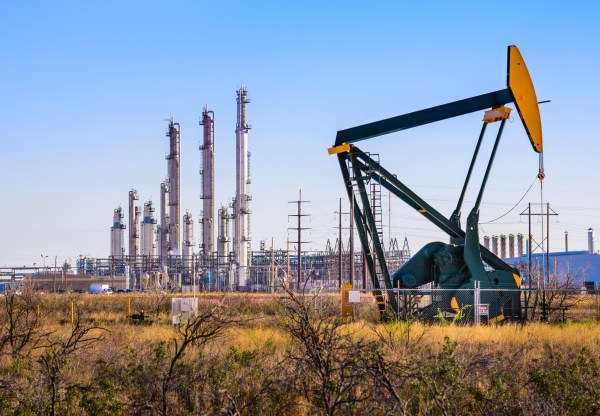
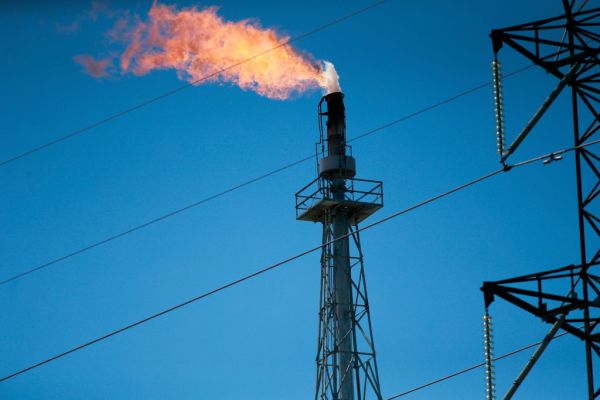


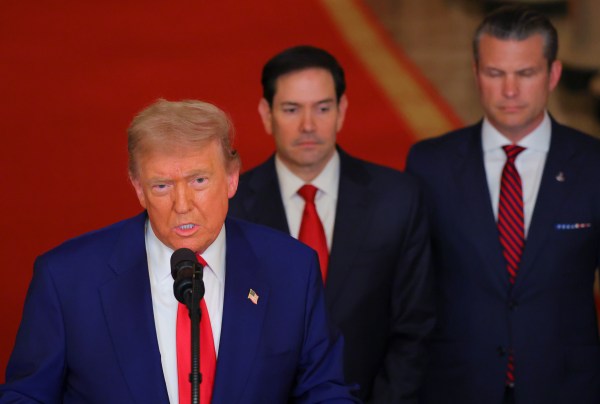
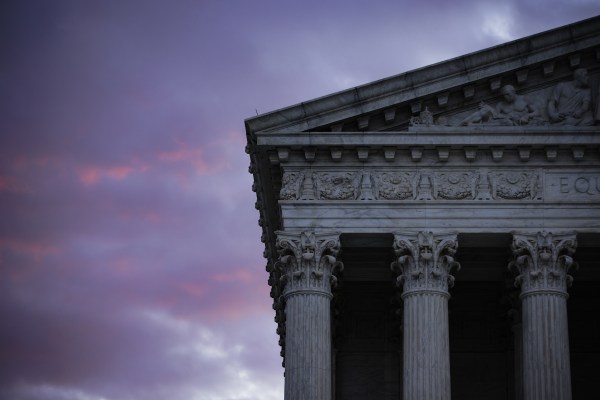


Please note that we at The Dispatch hold ourselves, our work, and our commenters to a higher standard than other places on the internet. We welcome comments that foster genuine debate or discussion—including comments critical of us or our work—but responses that include ad hominem attacks on fellow Dispatch members or are intended to stoke fear and anger may be moderated.
With your membership, you only have the ability to comment on The Morning Dispatch articles. Consider upgrading to join the conversation everywhere.